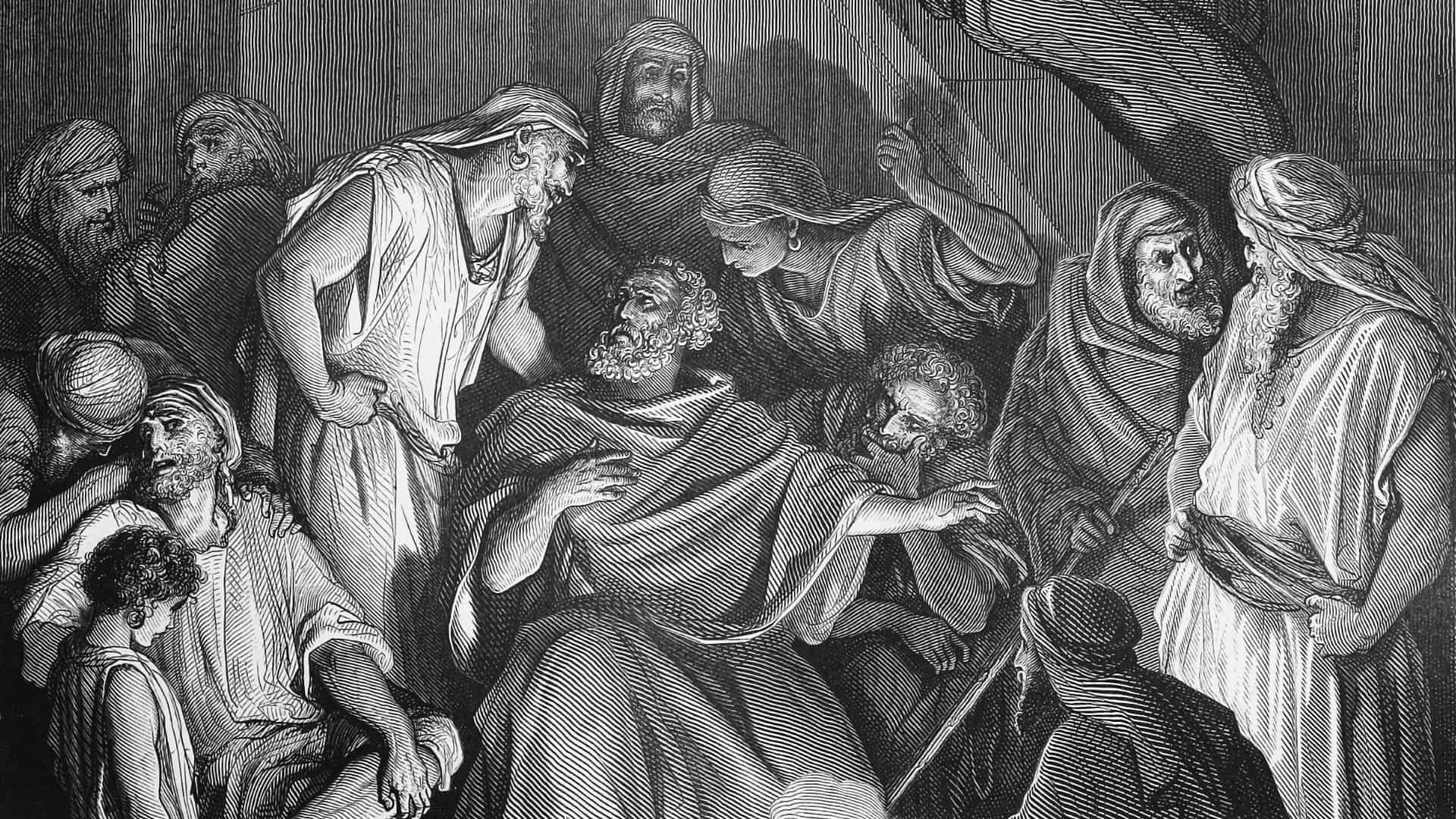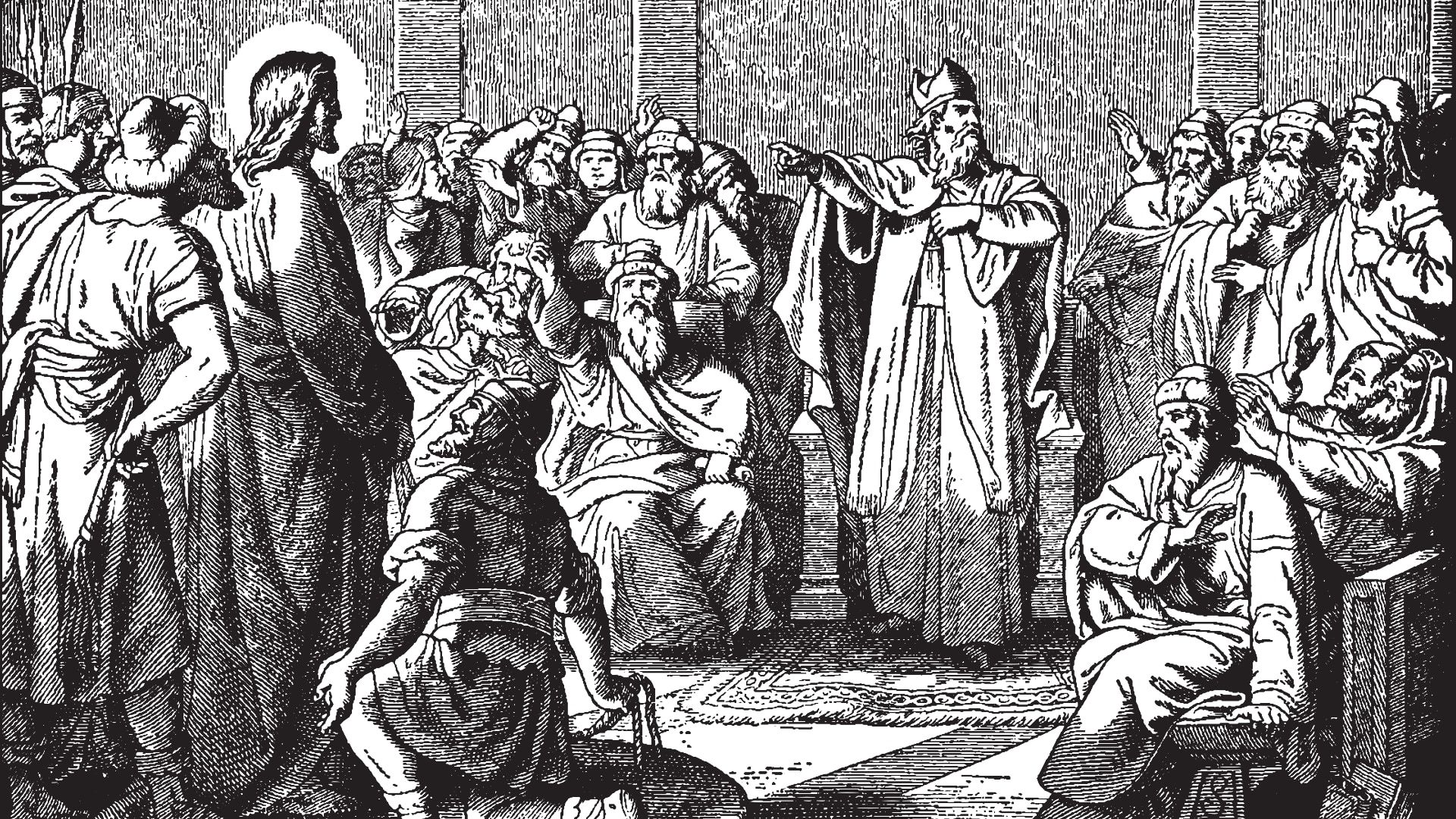Moral Overconfidence (Mark 14:66-72)

Big Idea: Resist moral overconfidence. Instead, recognize that you are weak, and in your weakness cling to Jesus’ strength and faithfulness.
I have bad news for both of us. We suffer from a serious condition called moral overconfidence.
In a 2015 article in the Washington Post, Nitin Nohria of Harvard explores the idea that we are not as virtuous as we think we are. Nohria has coined the term “moral overconfidence.” It is “this gap between how people believe they would behave and how they actually behave.”
Nohria goes on to say, “Moral overconfidence is on display in politics, in business, in sports—really, in all aspects of life.” This gap is most obvious “…in high-pressure situations, when there is some inherent ambiguity, when there are competing claims on our sense of right and wrong, and when our moral transgressions are incremental, taking us down a slippery slope.”
Can you relate? We want to act in a certain way, but under pressure, we fall short. We end up falling short of the standards we’ve set for ourselves.
Nohria’s solution is to stay away from certain situations. The only problem with that advice is, well, life. I’ve tired to avoid high-pressure situations in which I’m tempted to compromise my standards, but I do things like drive, work, and talk to people. We have a real problem, but we’re going to need a better solution than avoiding high-pressure situations.
It may help us to look at a case study to learn more about moral overconfidence and what we can do about it.
We’re in this series going through the Gospel of Mark as we approach Easter. Already we’ve seen Jesus move purposely to the cross as we see a variety of responses to him.
Peter’s Failure
As we examine today’s passage, Jesus has just been arrested. Everyone has deserted him. And now we zoom in to one character to see what he’s going to do.
Verse 66 says, “And as Peter was below in the courtyard…” What Mark is doing is shifting our attention to the trial of Jesus. It’s like we have two scenes being played out before us. On one hand, Jesus is facing the most stressful situation in his life. He’s being tried, mocked, and beaten by those who want to kill him. As we watch this scene out of the corner of our eyes, we’re both heartbroken by the way that Jesus is being treated, but we’re also encouraged. Jesus does not waver. Jesus remains faithful even in the greatest trial of his life.
But then Mark draws our attention down to the courtyard. It seems that, at the same time that Jesus is faithful in his trial, Peter is facing his own trial. And what we see is a servant girl — probably one of many servants who worked for the high priest — who passes through in the middle of her work. While Jesus faces trial at the hands of the high priest, witnesses, and guards, Peter faces his own trial, only his trial is at the hands of someone who’s just a passerby and who has no real power over him. In a very real sense, there are two trials going on at the same time.
And what happens? The servant girl spots Peter and says, “You also were with the Nazarene, Jesus” (14:67). Maybe she saw Peter earlier with Jesus as Jesus taught in the temple. It does seem that she may have a slightly derogatory tone. She speaks to Jesus as a Nazarene. Nazareth was a bit of a backwater. It would be like saying, “Hey, you were with that teacher from the hick town up north.”
Think about it. One of the inner circle had already betrayed Jesus. Peter had already blown it by drawing blood as they arrested Jesus. Now everyone had deserted Jesus. As this servant speaks these words, Jesus is being beaten. Imagine the pressure on Peter at this moment, even though his trial was much less severe than Jesus’.
So what happened? Verse 68 says, “But he denied it, saying, ‘I neither know nor understand what you mean.’ And he went out into the gateway and the rooster crowed.” Three things happen. First, Peter denies Jesus. Second, Peter moves locations. He moves closer to the exit, so he can make a quick getaway, and probably away from the light of the fire, so it would be harder for him to be seen. Third, a rooster crows. What is that about? Look back at verse 30:
And Jesus said to him, “Truly, I tell you, this very night, before the rooster crows twice, you will deny me three times.” But he said emphatically, “If I must die with you, I will not deny you.” And they all said the same.
In other words, Peter completely and utterly fails in his trial. And he’s not even done yet.
In verse 69, the intensity gets ramped up. “And the servant girl saw him and began again to say to the bystanders, ‘This man is one of them.’” I have a couple of things to say. First, who is this servant girl? She is very persistent! She just won’t let it go.
But the other thing to say is that if you are going to fail in private, you are probably going to fail in front of people. In the first test, it was just Peter and the servant girl. Now there are other bystanders too, probably including some guards.
In Luke 16:10, Jesus said, “One who is faithful in a very little is also faithful in much, and one who is dishonest in a very little is also dishonest in much.” Jesus is speaking about money there, but the same principle applies in general. How we act when the trial is smaller is a good prediction of how we will act when the trial escalates. That’s why our faithfulness in small things matters. How you act in small tests will tell you how you will act in big tests. Who you are in private, out of the public eye, when few people are looking, matters more than you think.
And that’s just what happens with Peter. Verse 70 tells us that Peter denied it again. He failed the test when few were looking. Now he fails the test when more are looking.
But then comes the third and final test. Verse 70 says, “And after a little while the bystanders again said to Peter, ‘Certainly you are one of them, for you are a Galilean.’” When I travel to the States, depending on where I go, people comment on my Canadian accent. They sometimes get a little silly saying that Canadians say “a boot” instead of about. I’ve never heard a Canadian ever say a boot. But it’s clear that my accent gives me away. People know that I’m from Canada. And the same happens with Peter. They can tell he’s from Galilee, and they put together that he must be one of Jesus’ followers.
Look at how Peter reacts: “But he began to invoke a curse on himself and to swear, ‘I do not know this man of whom you speak’” (Mark 14:71). Peter loses it. He completely denies even knowing Jesus. At this point, he’s completely and utterly blown his trail. Jesus has remained faithful in his trial, but Peter has failed his own trial spectacularly.
Here’s what I wanted from Peter. Polycarp was a leader in the early church, supposedly a pupil of the Apostle John. In 156, the was finally arrested and put on trial. He was given the order to deny Jesus or else die. Listen to what he said: “For eighty-six years I have been his servant, and he has done me no wrong, and how can I blaspheme my King who saved me?”
Soldiers then grabbed him to nail him to a stake, so he wouldn’t flee from the fire, but Polycarp stopped them: “Leave me as I am. For he who grants me to endure the fire will enable me also to remain on the pyre unmoved, without the security you desire from nails.” He prayed aloud, the fire was lit, and his flesh was consumed. The chronicler of this martyrdom said it was “not as burning flesh but as bread baking or as gold and silver refined in a furnace.”
The account concluded by saying that Polycarp’s death was remembered by "everyone" — "he is even spoken of by the heathen in every place." And then he was burned alive.
That’s how I want Peter to go down. But look at how Peter did go down. He cursed and denied even knowing Jesus. And then it hit him:
And immediately the rooster crowed a second time. And Peter remembered how Jesus had said to him, “Before the rooster crows twice, you will deny me three times.” And he broke down and wept. (Mark 14:72)
Feel the weight of that. Peter knew that he had failed. It was the lowest moment of his life.
What Do We Learn?
What can we learn from all of this?
First, we are weak. I began today by talking about moral overconfidence as the gap between how people believe they would behave and how they actually behave. If there’s anything that Peter shows us, it’s that we should never overestimate how well we will perform under trial. Wisdom begins by recognizing that we are weak. We don’t have what it takes, and we should know it.
Friends, don’t overestimate yourself. 1 Corinthians puts it well: “Therefore let anyone who thinks that he stands take heed lest he fall” (1 Corinthians 10:12). We are never more in danger than when we think we’re not in danger.
The amazing thing: God gives grace to those who know they can’t handle temptation on their own. He’s given us the body, so we can support each other. He promises his grace to those who struggle and are weak. Our greatest problems are when we overestimate our ability to handle temptation on our own. We can’t. We don’t have what it takes. The more we think we do, the greater the danger to our souls. The only way we can survive the trials we face is with complete dependence on God and an awareness that we don’t have what it takes.
Second, see the hope. It’s very difficult to spot any hope in this passage until you realize that the very reason that Jesus was going to the cross is for people like Peter, like you, and like me. Later, Jesus restores Peter. He goes on to become a key leader in the church. In just a few weeks Peter “is no longer a cowering disciple running from a servant girl’s accusation. He is now the Spirit-filled apostle of Jesus Christ, facing down the most powerful religious leaders in the country” (Mark Strauss)
If you have failed Jesus, welcome. You are in the right place. Jesus died for failures like you and like me.
Finally, look again at Jesus. Mark shows us two trials. In one trial, Peter fails. In the other trial, Jesus succeeds. Mark is showing us that our ultimate hope is nothing less than the faithfulness of Jesus who passed the test that we didn’t, who was faithful to death — and whose perfect record has been imputed to us.
Resist moral overconfidence. Instead, recognize that you are weak, and in your weakness cling to Jesus’ strength and faithfulness. He, not our own performance, is our hope.





